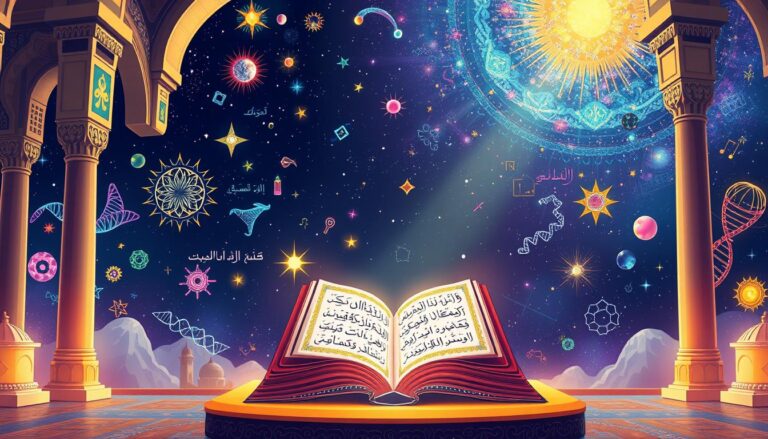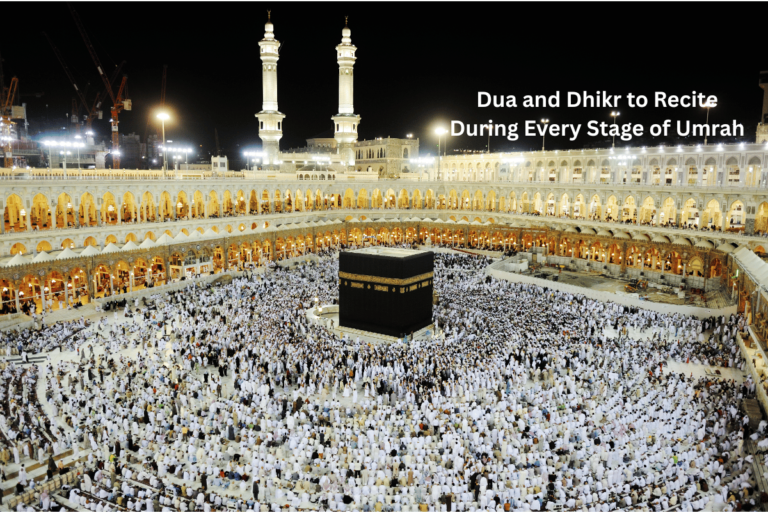How Islam Promotes Sustainability: Lessons for Today
Can ancient Islamic teachings offer modern solutions to our environmental crisis? The world faces climate change and resource depletion. Yet, the Qur’an and Prophet Muhammad’s life hold unexpected wisdom. These principles of Islamic environmental ethics are more relevant today than ever.
The Qur’an, revealed over 1400 years ago, speaks to our relationship with nature. It shows humans as Earth’s custodians, tasked with preserving its balance. This idea of Khalifa, or stewardship, is key to Islamic environmental ethics.
Quranic teachings on conservation are more than suggestions. They’re part of Muslim life, shaping daily practices and long-term decisions. Islam guides us in eco-friendly living, from water conservation to protecting natural areas.
Muslim eco-friendly practices benefit the planet and are acts of worship. By caring for the environment, Muslims show gratitude to Allah. This spiritual aspect deepens environmental stewardship, making it a matter of faith and responsibility.
Key Takeaways
- Islam views humans as custodians (Khalifa) of the Earth
- The Qur’an contains numerous references to environmental protection
- Islamic teachings encourage responsible resource use and waste reduction
- Environmental conservation is considered a religious duty in Islam
- Prophet Muhammad set examples of sustainable living and resource management
- Islamic principles of moderation align with modern sustainability goals
The Islamic Worldview on Environmental Stewardship
Islam teaches us to care for the Earth, seeing humans as its guardians. This belief guides Muslims to live sustainably and protect our planet.
The Concept of Khalifa in Islam
In Islam, humans are seen as khalifa, or caretakers of the Earth. We have a duty to use resources wisely and protect the environment. The Quran reminds us that we are entrusted with the Earth’s care.
Quranic Teachings on Environmental Responsibility
The Quran has many verses about taking care of the environment. It urges us to keep nature in balance and avoid waste. A study found over 30 Quranic references to cleanliness and purity, showing the importance of environmental care.
Prophet Muhammad’s Environmental Practices
Prophet Muhammad showed us how to care for the Earth. He created protected areas called Hima and stopped the destruction of trees and crops during war. He also encouraged planting trees as a form of charity.
His teachings on ablution, or ritual cleansing, also promoted water conservation. This shows the importance of using resources wisely.
- Established protected areas (Hima)
- Forbade destruction of nature during conflicts
- Promoted tree planting as an act of charity
In 2015, the Muslim world issued the Islamic Declaration on Climate Change in Istanbul. This document outlined an ethical plan for a future with less pollution and more resilience to climate change. It highlights Islam’s commitment to protecting the environment.
Quranic Verses Advocating Environmental Conservation
The Quran, Islam’s holy book, has many verses about caring for the environment. These teachings are at the heart of Eco-Islam, a new way of seeing Islamic values through environmental ethics.
One important verse is in Surat Al-A’raf (7:31). It tells us not to waste:
“Eat and drink, but waste not by excess, for Allah loves not the wasters.”
This verse teaches us to be moderate and manage resources well. These are core values in Eco-Islam.
Another key verse is from Surat Al Qasas (28:77):
“But seek, with the (wealth) which Allah has bestowed on thee, the Home of the Hereafter, nor forget thy portion in this world: but do thou good, as Allah has been good to thee, and seek not (occasions for) mischief in the land: for Allah loves not those who do mischief.”
This verse warns us not to harm the Earth. It shows the Islamic belief in taking care of the planet.
These teachings from the Quran give Muslims a strong reason to protect the environment. They remind us that we must take care of the Earth for the benefit of all future generations.
Islamic Principles of Moderation and Resource Management
Islam teaches us to live sustainably by being moderate and managing resources well. It encourages us to consume in balance, which matches today’s sustainability goals.
Avoiding Wastefulness and Excess Consumption
Islamic teachings tell us to avoid too much and waste. The Quran teaches us to use resources carefully, showing the value of moderation. This helps protect our planet by reducing waste.
Balancing Human Needs with Environmental Protection
Islam teaches us to balance our needs with protecting the environment. The idea of equilibrium (mīzān) is key in Islam. It tells us to use resources wisely, thinking of today and tomorrow.
The Concept of Rizq (Sustenance) in Islam
Rizq, or sustenance, is a big idea in Islam. It teaches us to trust in God’s provision and use resources wisely. This idea helps us live sustainably, encouraging us to consume with care.
“Eat and drink, but waste not by excess; indeed, He (Allah) likes not those who waste.” – Quran 7:31
Islamic teachings on moderation are very relevant today. They guide us to consume responsibly and manage resources well. This aligns with global efforts to live sustainably.
How Islam Promotes Sustainability: Lessons for Today
Islamic teachings are full of valuable lessons for today’s world. They stress the importance of taking care of our planet. The idea of ‘amanah’ in Islam shows we are guardians of Earth, given by Allah to protect it.
This idea matches today’s goals for sustainability. It encourages us to manage resources wisely and live in harmony with nature.
Green Islam teaches us to live with purpose and care. It suggests we should value things that last, not just throw them away. For example, Islamic finance doesn’t allow interest. It supports ethical investments, like green sukuk and projects that help communities.
Practical lessons for today include:
- Water conservation as a religious duty
- Choosing sustainably sourced and cruelty-free products
- Implementing water-efficient irrigation systems
- Prioritizing renewable energy sources
- Engaging communities in environmental stewardship
Islamic teachings also talk about sharing and reducing waste. The Hadith says, “Whoever plants trees will be rewarded by God according to the extent of their fruit.” This inspires us to help the environment by simple actions like planting trees.
By following these Islamic principles, we can build a better future. It’s one where people and the planet thrive together. The lessons from Green Islam guide us towards living ethically and responsibly.
Water Conservation in Islamic Teachings
Water is very important in Islamic teachings and Muslim eco-friendly practices. The Quran talks about water 63 times, showing its key role in life. Muslims believe water is a gift from God, and they must use it wisely.
Water in Islamic Rituals
Ablution, a ritual done five times a day before prayer, shows water’s importance. Prophet Muhammad used about 2/3 of a liter for ablution, teaching moderation. This teaches Muslims to think about their water use, even in religious acts.
Quranic Guidance on Water Preservation
The Quran gives clear advice on saving water. Surah Al Mu’minun talks about water’s limited supply, and Surah al Araaf (7:31) warns against wasting it. These teachings are the base of Islamic environmental ethics, pushing for water use that lasts.
Water Conservation in Muslim Communities
Islamic rules guide how Muslims manage water. Shariah law makes sure water is shared fairly, considering both upstream and downstream needs. Mosques and Islamic groups use water-saving tech and teach others about saving water.
“And We made from water every living thing” – Quran 21:30
This verse from the Quran shows water’s sacred value. It motivates Muslims to save water for future generations. By following these teachings, Muslim communities help with global water conservation, matching today’s environmental aims.
Islamic Perspectives on Biodiversity and Wildlife Protection
Islam deeply values biodiversity and wildlife protection. It sees maintaining ecological balance as key to caring for the environment. This belief comes from the Quran and the teachings of Prophet Muhammad (Peace Be Upon Him).
The Quran views animals and plants as communities like humans, showing their importance. This belief encourages Muslims to respect and protect all life. Planting a tree is seen as a charitable act, showing Islam’s dedication to nature.
Prophet Muhammad (PBUH) created protected areas called Hima for wildlife. This action started modern conservation efforts in Islamic communities. His teachings also warn against overusing and harming natural resources, matching today’s sustainability goals.
“He who cuts a lote-tree [without justification], Allah will send him to Hellfire.” – Prophet Muhammad (PBUH)
Islamic teachings stress treating animals with kindness and saving species. It sees humans as caretakers of the Earth, tasked with keeping it balanced. This encourages Muslims to live sustainably and protect wildlife habitats.
- Islam emphasizes environmental protection and ecological restoration
- The Quran contains specific references to ecology and the environment
- Sustainable cultivation of land and wildlife protection are endorsed in Islamic teachings
By living these principles, Muslims can help protect biodiversity and wildlife. They fulfill their duty as guardians of the Earth.
Sustainable Agriculture and Land Management in Islam
Islamic teachings bring a unique view on living sustainably and managing land. The idea of Eco-Islam focuses on caring for the Earth’s resources. It matches today’s sustainability goals and uses old religious wisdom.
The Concept of Hima in Islamic Tradition
Hima is an ancient Islamic method for protecting nature. It started long before today’s environmental laws. Now, over 20 percent of the world’s people follow Islamic teachings, affecting land use worldwide.
Islamic Teachings on Land Cultivation
In Islam, farming is seen as a way to worship. The Quran says we must respect private property but also remember the earth belongs to God. This view encourages believers to use land wisely and well.
Sustainable Farming Practices in Islam
Islamic teachings support green farming like rotating crops and saving water. These methods fit the three sustainability Ps: people, planet, and profit. Islam connects land rights to how land is used, favoring those who actively work it.
- Fair food distribution is emphasized in Islamic teachings
- Islamic law recognizes protection of property rights as a priority
- Contemporary land tenure systems in Muslim countries blend Islamic principles with state laws and customary norms
Sustainable living in Islam teaches us important lessons for today’s environmental issues. By mixing these timeless teachings with today’s practices, we can aim for a greener future for everyone.
Islamic Economics and Sustainable Development
Islamic economics closely matches sustainable development. The Quran talks about finding balance between growing the economy and taking care of the environment. This shows Islamic values of using resources wisely and not overconsumption.
Green Islam teaches us to handle money in a way that’s good for the planet. It tells us to spend wisely and think about how we use resources. The Quran reminds us to use Earth’s gifts carefully because they are limited.
Key parts of Islamic economics for a greener world include:
- Avoiding usury and excessive speculation
- Promoting fair trade practices
- Encouraging charitable giving
- Utilizing waqf (endowments) for environmental projects
These ideas match the United Nations’ Sustainable Development Goals. Both want to balance economic growth, social progress, and protecting the environment. Islamic economics gives us good ideas for a greener global economy.
“We have not sent you but as a mercy for all the worlds.” – Quran 21:107
This verse shows Islam’s big picture view on helping people and the planet. By living by Islamic economic rules, we can help make a better future for everyone.
The Role of Islamic Ethics in Promoting Eco-friendly Practices
Islamic environmental ethics are key in promoting eco-friendly practices among Muslims. The idea of caring for the Earth is deeply rooted in Islamic teachings. It encourages followers to see Earth care as a form of worship.
Environmental Stewardship as Worship
In Islam, taking care of the environment is a sacred duty. The Quran has over 200 verses that highlight the need for environmental care. This motivates many Muslims to live sustainably every day.
Ihsan in Environmental Care
The Islamic concept of Ihsan, or excellence, applies to environmental care. It encourages believers to do more than just conserve. It inspires them to innovate in protecting nature.
Integrating Ethics into Daily Life
Muslim eco-friendly practices are becoming more common in daily life. From sustainable farming to water conservation, Islamic teachings guide these choices. In the US, initiatives like Eco-Fab Living and Green Deen show how Islamic teachings meet modern environmental activism.
“Caring for the Earth is a form of gratitude to God.”
In Muslim-majority countries, Islamic environmental ethics are integrated into daily life. Indonesia focuses on reforestation and wildlife conservation. Turkey is expanding its renewable energy and preserving biodiversity. These efforts show a strong commitment to eco-friendly practices based on Islamic principles.
Green Islam: Modern Interpretations and Applications
The Green Islam movement is growing fast. Modern Muslim scholars are rethinking Islamic teachings to tackle today’s environmental problems. They focus on Islam’s core values of living sustainably and caring for the earth. A recent survey found that over 85% of Muslims want to learn more about caring for the environment and apply it in their daily lives.
Islamic groups are working hard to spread the word and promote green living in Muslim communities around the world. They find inspiration in the Qur’an and the Prophet Muhammad’s teachings. These teachings offer practical advice on saving water and managing land, helping to tackle big issues like climate change and losing biodiversity.
Eco-Islam is more than just a theory; it’s a call to take action. More than 80% of British Muslims feel that teaching about environmental ethics is lacking in their community. This creates a chance for Islamic leaders and teachers to include green practices in religious lessons and community projects. This way, they can raise a generation of Muslims who care deeply about the environment.
As Green Islam grows, it connects old wisdom with new science. It teaches Muslims to see the environment as a complex network that affects all living things. This view makes caring for the environment a sacred responsibility. It not only helps the planet but also follows Islamic values of balance, moderation, and looking after the earth.
Source Links
- Spirituality, Sustainability, and the Environment: An Islamic Perspective | eePRO
- Environmental Sustainability in Islam | EcoMENA
- Protecting our Environment: Sustainability Lessons from the Life of Prophet Muhammad ﷺ
- How Islam can represent a model for environmental stewardship
- Islam’s Perspective on Environmental Sustainability: A Conceptual Analysis
- What the Quran Says about Environmental Activism
- Islamic Teachings On Environmental Conservation – Useful Ideas
- Religions and environmental protection
- Religion and Sustainability: Lessons of Sustainable Computing from Islamic Religious Communities
- Awareness of the Role of “Religious People” in Environmental Conservation from the Perspective of Islamic Studies Students
- An Islamic Perspective on Ecology and Sustainability
- Environmental Sustainability Through the Lens of Islamic Ethics – Tazkiyah
- Environmental Teachings in Islam
- What role does sustainability play in Islamic finance?
- Water Conservation in Islamic Teachings
- World Environment Day: Islam Promotes Active Environmentalism: Teachings On Being Eco-friendly Muslims
- Islam and Environment Protection
- Islam’s insights on sustainability and the environment
- Re-Thinking Sustainable Development within Islamic Worldviews: A Systematic Literature Review
- Sustainable Development And Islamic Economics Paradigms Compared
- Islam and Environmental Ethics: A Green Perspective
- Interview with eco-Islam scholar and 11 books for sustainable Muslims
- Sustainable Development and Islamic Ethical Tasks for Business-Organisations
- When the Earth Speaks Against Us: Environmental Ethics in Islam | Yaqeen Institute for Islamic Research
- International Journal of Religion
- Integrating Environment with Health: An Islamic Perspective







